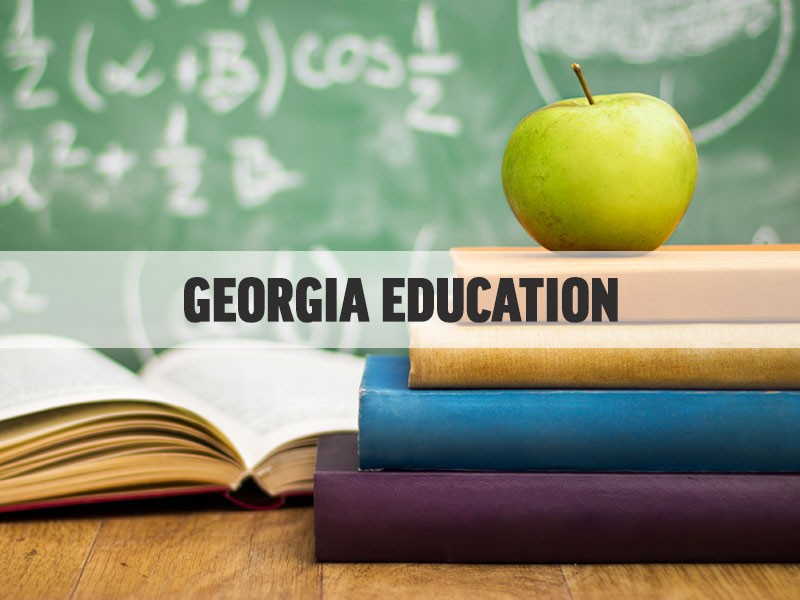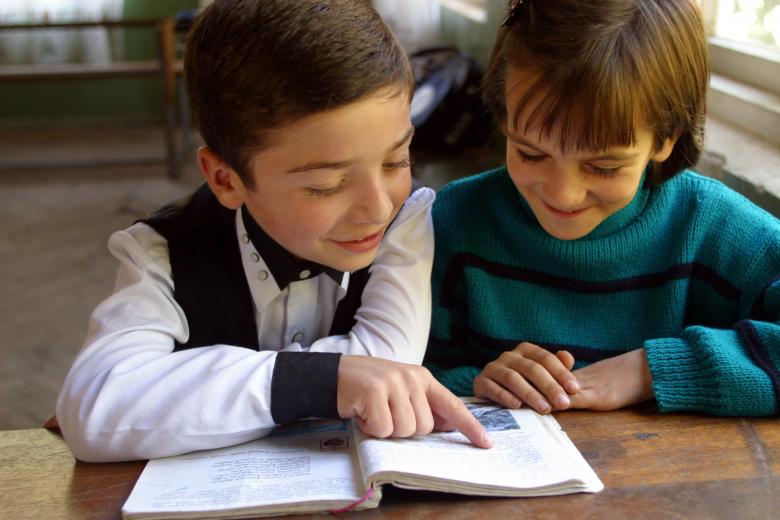“What about them?” Education in Georgia

Features of school education in Georgia
The Georgian leadership understands that the main resource of the country is the intellectual potential of its citizens and directs its reforms towards the education system, following the example of American and European systems. At the same time, we can see obvious signs of the Soviet system in education.
Children come to school at age 6 and study at age 12 (classes). During this time children go through 3 levels:
- Elementary school – 6 years.
- Elementary school – 3 years.
- Secondary school – 3 years.
Much attention is paid to computerization in Georgian schools: every first grade pupil receives a netbook (present from the President) for recording and doing homework. These computers are produced in Georgia based on Intel processors. A special program is installed in the computers, which makes the learning process more interesting. What is remarkable is that it concerns not only urban schools, but also village schools. But the main education is traditionally based on textbooks. The textbooks are given free of charge at the beginning of the year and at the end of the year they are given to the library.

Learning foreign languages
A foreign language is studied from the first grade. In Georgia, most students are already fluent in English at the primary school stage. From the fifth grade, students start learning a second foreign language of their choice, and many schools choose Russian. Previously students started to learn a second foreign language from the seventh grade, but there was a lot of dissatisfaction among teachers and parents, so starting from this year, the second foreign language is studied from the fifth grade, and the third of the students’ choice is studied from the tenth grade.
A ten-point grading system has been adopted in Georgia. After the 9th grade, a pupil receives a document confirming his successful completion of primary school. After another three years, a certificate of full secondary education is issued.
School life organization in Georgia is supervised by boards of trustees (school board of trustees includes teachers, parents and pupils). The boards of trustees, with the participation of the Ministry of Education, elect school principals. After testing, interviews with the Ministry of Education, the candidates for the position of principal present their strategic plan for the development of the school to the Board of Trustees, and the Board of Trustees selects the principal from several candidates.
In order to enter higher education, it is necessary to take examinations in compulsory subjects:
- Foreign language (optional).
- Mathematics.
- Georgian language.
And also in those subjects which the university offers for admission to a particular specialty:
- Iterature.
- History.
- Geography.
- Biology.
- Chemistry.
- Physics.
In Grade 12, in addition to the basic compulsory subjects for applicants, there are additional lessons on the subjects they take in the entrance exams of the respective program. Attendance in these classes is not monitored. Go to the site and find out morehttps://argoprep.com/blog/gmas/
Instead of physical education lessons, there are sports lessons and school leagues in various sports.
New subjects are studied: world culture, civil self-protection and security. Another subject, “Road signs and traffic safety”, has been studied since grade 11.
Teachers in Georgia
Teachers of Georgian schools deserve special attention. Their salaries directly depend on the results of special testing. Every five years the Ministry of Education controls general knowledge: Georgian language and history, as well as the subject in which the teacher specializes. In addition to the main provisions, the control system includes knowledge of English and ICT proficiency. If a teacher is excellently certified, he or she will receive a substantial salary supplement. Attestation and continuing education courses are mandatory.
This year, a new scheme for professional development of teachers is being introduced. Certification exams for a subject are still valid, but an integrated exam (ICT + English) is no longer required. The main innovation is that teachers are divided into three categories:
- 1 category – uncertified teachers
- The 2nd category is all certified teachers.
- Category 3 – Doctors of Science school practitioners
To move from one category to another, you need to dial the required number of “credits” within 3-4 years. One form of “credits” is to take a subject exam, but there are also many other options: training, teacher conferences, integrated lessons, authorship and co-authorship of printed books, inclusive learning and more.
More than 1000 foreign teachers, who speak English and other languages, have entered Georgia after the education reforms and intensive learning of English. These are teachers from the USA, Canada, New Zealand, Australia, UK and other countries. Teachers are invited upon request of the school.
Private schools are also involved in pedagogical activities in Georgia together with public school institutions. They are most common in large higher education institutions.
The “Georgian Language for Prosperity in the Future” programme has been in operation since 2012. It involves teaching Georgian in Kvemo Kartli (Lower Kartliya) and Samtskhe-Javakheti (remote regions of Georgia), where the main population are Armenians and Azerbaijanis. More than 500 volunteers go to these places and in non-Georgian schools teach the local population the Georgian language. For greater motivation, those students who finish grade 12 with the highest average score are awarded a silver or gold medal, and those who finish grade 9 with a score of 10 are awarded personal computers.